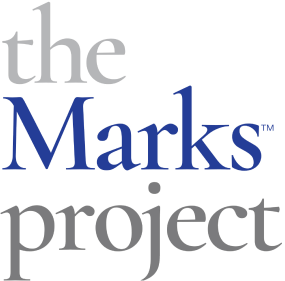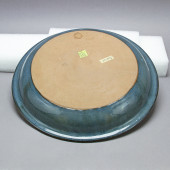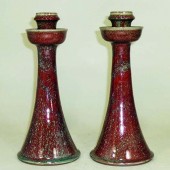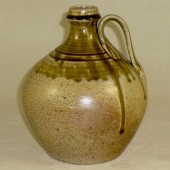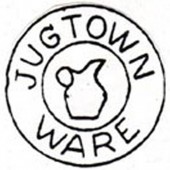![]() Printer version
Printer version
Vernon Owens, Jugtown Pottery
1917Jugtown Pottery founded by Jacques and Juliana Bushbee, Seagrove, Moore County, North Carolina
1918Village Store, New York City, New York opened
1923Ben Owen hired
1960John Mare purchase Jugtown Pottery / Vernon Owens hired
1962-1968Vernon Owens leased Jugtown Pottery
1968Jugtown Pottery purchased by Country Roads, Inc.
1969-1980Apprenticeship Program
1983Vernon Owens purchased Jugtown Pottery from Country Roads, Inc.
1994North Carolina Folk Heritage Award, Vernon Owens
1996National Heritage Fellowship, National Endowment for the Arts, Vernon Owens
BIOGRAPHY
Vernon Owens is known for a wide range of functional pieces referencing the southeastern pottery tradition both in form and glaze color. His work was created at Jugtown Pottery.
Jugtown Pottery in Seagrove, Moore County, North Carolina is in the center of the North Carolina pottery tradition. It was founded in 1917 by Jacques and Juliana Busbee. The Busbees were artists originally from Raleigh, North Carolina. The couple set about creating opportunities for potters to preserve traditional regional skills. It was the traditional orange glazed, salt fired wares of the region that had attracted the Busbees to Seagrove.
In an effort to market the local potter’s work to a larger audience Julianna opened the Village Store in 1918 in New York City. Since the workshop at Jugtown had not yet been built orders for the store went to potters who had their own wheels and kilns. They used locally dug clay that was mixed using mule power. The thrown pieces were fired in wood burning kilns. Henry Chrisco, Rufus Owen, James Owen and J.W. Teague were among the first group.
The first known potter to work with the Busbee's at Jugtown was James H. Owen. Charlie Teague was the second known potter to be hired by the Busbees. Ben Owen was hired as the third known potter for Jugtown Pottery in 1923. The earliest work produced at Jugtown was white or brown slip decorated and was for domestic use. Tiffany in New York was contacted as a possible outlet for work. This connection led to the addition of new shapes, many showing Asian influences as well as a group of new glazes.
John Mare purchased Jugtown in 1960 and hired Vernon Owens to throw pots for Jugtown. Vernon’s brother, Bobby Owens, along with Charles Moore glazed the ware, loaded and fired the kiln. The Owens brothers are the sons of M.L. Owens, who added the s to his surname and the grandsons of James H. Owen. After Mare died suddenly in 1962 Vernon Owens leased the pottery and ran it until 1968 when it was purchased by Country Roads, Inc. a nonprofit corporation dedicated to preserving traditional handcrafts.
Vernon continued to work at Jugtown with Nancy Sweezy, a potter, who became the director soon after Country Roads purchased the pottery. She changed the earthenware glazes to fritted lead glazes and began the use of upright oil kilns. She developed a completely different line of colors. In an effort to create lead free functional ware Sweezy developed a new line of higher temperature glazes in the early seventies. An apprenticeship study program set up by Sweezy, brought over thirty pottery students to study at Jugtown from 1969 through 1980. Pam Lorette, now Vernon’s wife came in the late 1970's to study at Jugtown.
In 1983 Country Roads, Inc. sold the pottery to Vernon who continues to make pots, something he has done since he was seven. Together with his wife Pam, son Travis and daughter Bayle, the family continues the traditions of Jugtown while adding new forms and glazes with an eye to the 21st century. The work is fired in a modified groundhog wood burning kiln built in 1996, often with the addition of salt.
The way pots are marked:
1-circular stamp with jug in center and "Jugtown ware" written around jug; Impressed in base of piece year piece was made, stamped on base of piece, signature Vernon Owens incised in base or initials VO stamped on base
2- circular stamp with pitcher in center and Jugtown ware written around pitcher; Impressed in base of piece year piece was made, stamped on base of piecesignature Vernon Owens incised in base or initials VO stamped on base
3-used rarely, a stamp from 1960 -circular stamp with jug (with a round top) in center and Jugtown ware written around jug; Impressed in base of piece year piece was made, stamped on base of piece signature Vernon Owens incised in base or initials VO stamped on base.
PUBLIC COLLECTIONS
American Museum of Ceramic Art, Pomona, California
Gregg Museum of Art and Design, Raleigh, North Carolina
Museum of International Folk Art, Santa Fe, New Mexico
Smithsonian American Art Museum, Washington, D.C.
BIBLIOGRAPHY
Eaton, Allen. Handcrafts of the Southern Highlands. 1937. Reprint. New York, NY: Dover Publications, 1973.
Eidelberg, Martin. “Art Pottery.” In The Arts and Craft Movement in America 1876-1916, editor Robert Judson Clark, 119-86. Princeton, NJ: Princeton University Press, 1972.
Levin, Elaine. The History of American Ceramics 1607 to the present. New York, NY: Harry N. Abrams, Inc., 1988.
Perry, Barbara, ed. American Ceramics The Collection of Everson Museum of Art. New York, NY: Rizoli, 1989.
Artist's Studio: Jugtown Pottery
 | Center For Craft |
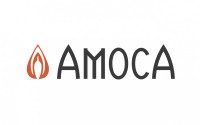 | AMOCA American Museum of Ceramic Art |
Citation: "The Marks Project." Last modified August 27, 2025. http://www.themarksproject.org:443/marks/owens-0
